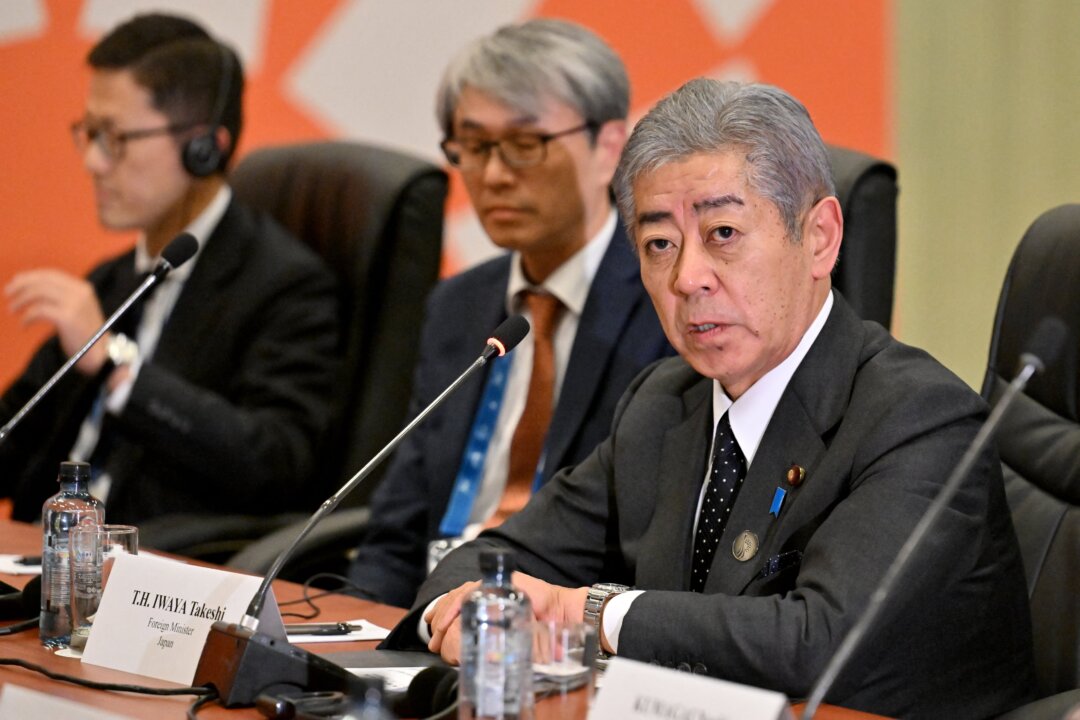Japan’s Takeshi Iwaya will meet with officials in South Korea to discuss regional security in light of aggression by communist China and North Korea.
Japan’s foreign minister will travel to South Korea next week to discuss regional security cooperation against a backdrop of growing Chinese and North Korean aggression in the region.
Japanese Foreign Minister Takeshi Iwaya will meet with his South Korean counterpart Cho Tae-yul and acting President Choi Sang-mok on Jan. 13 to coordinate policies including responses to North Korea’s increasing threats against both nations.
The move follows a North Korean missile launch into the waters north of Japan last week, as well as the revelation that a Chinese cyberespionage group has been engaged in the theft of Japan’s national security and technology secrets since 2019.
Japan, South Korea, and the United States initiated a historic trilateral security cooperation agreement in 2023 known as the Camp David Principles, overcoming decades of latent hostility between Tokyo and Seoul.
The trilateral pact has since been regarded as a key mechanism for containing aggression by China and North Korea’s communist leadership, but its future is now somewhat tenuous.
When President-elect Donald Trump takes office later this month, none of the national leaders who established the pact will remain in power.
Iwaya’s planned visit will mark the first occasion in seven years that a Japanese foreign minister has traveled to South Korea.
Japanese leadership is also still feeling out how best to manage its relationship with Seoul following the impeachment of South Korean President Yoon Suk Yeol in December over a botched declaration of martial law.
Yoon has since been sequestered in a hillside villa, with presidential security service and military guards there blocking the interim government’s investigators from arresting him.
Japan Prime Minister Shigeru Ishiba held a phone call with acting South Korean Prime Minister Han Duck-soo shortly after the impeachment where the two agreed that continuing security cooperation was necessary given the region’s volatility.
Likewise, U.S. Secretary of State Antony Blinken visited South Korea and Japan this week, meeting with senior government officials to strengthen key security efforts in the region ahead of the transition of power.
Speaking to reporters in Tokyo on Friday, U.S. Ambassador to Japan Rahm Emanuel said that trilateral security cooperation will continue, but it was unclear how strong it will remain.
“The trilateral will move forward, the real question is will the trilateral thrive,” Emanuel said. “It’s going to take work to nurture it and develop it.”
Reuters contributed to this report.

